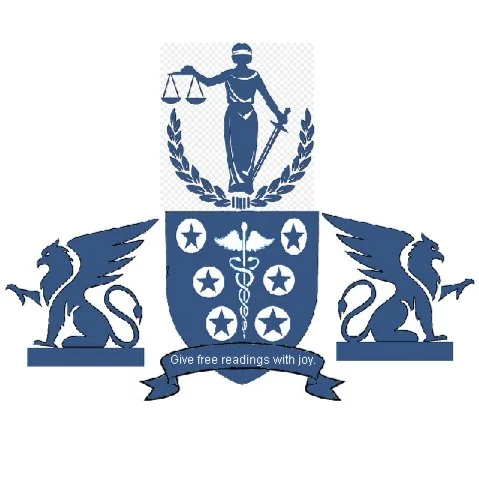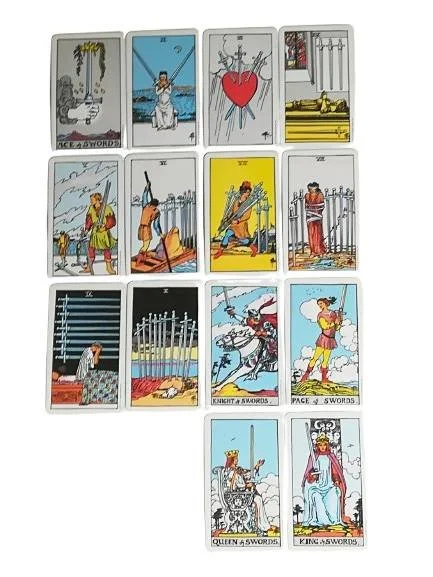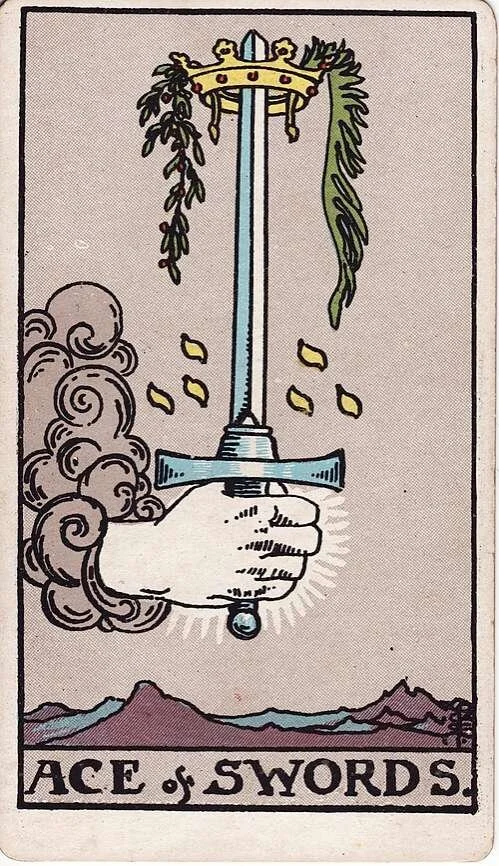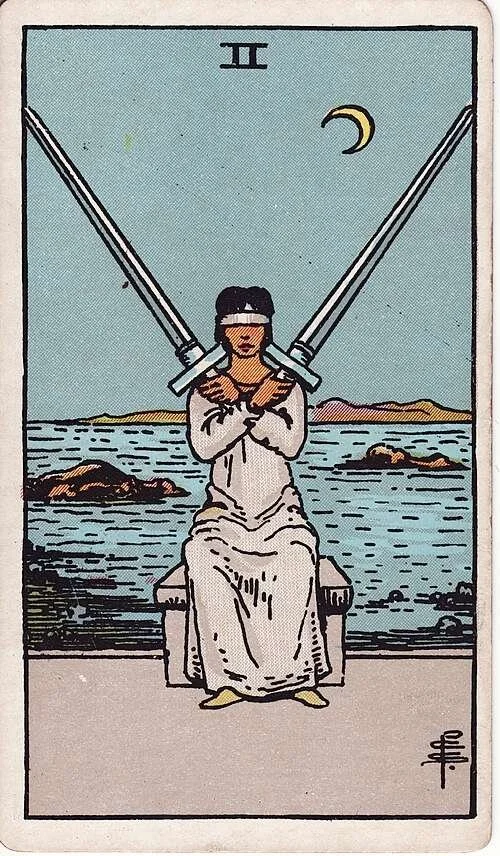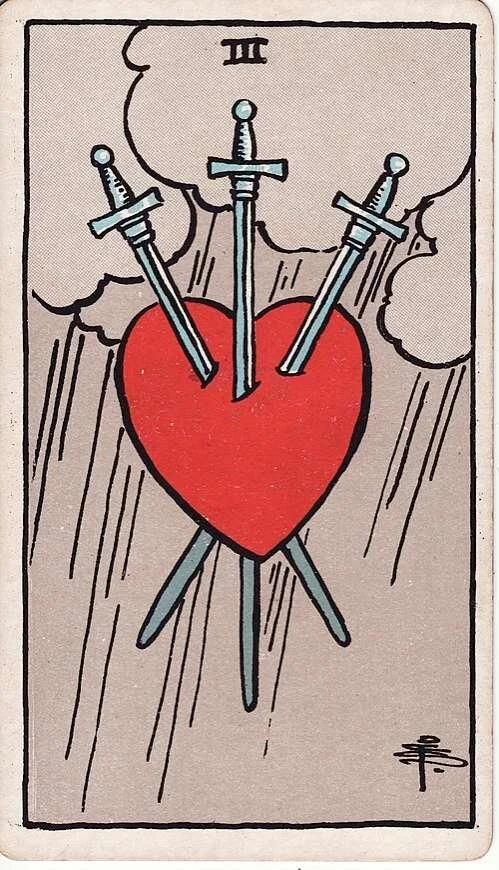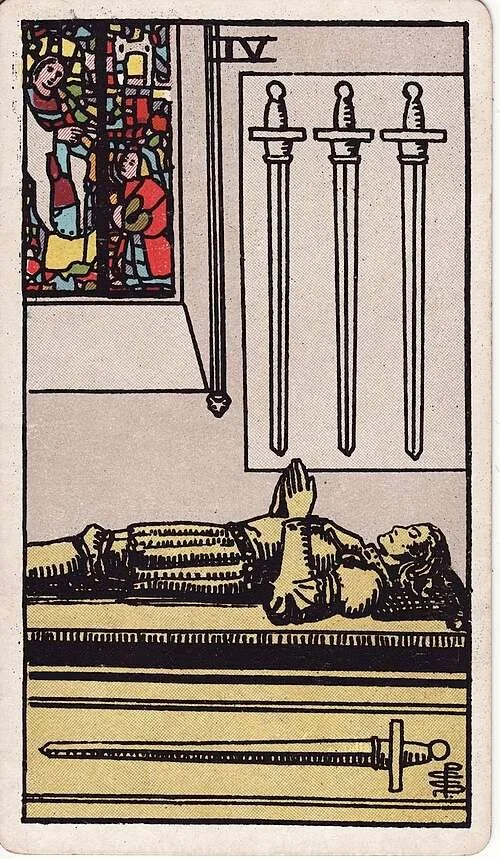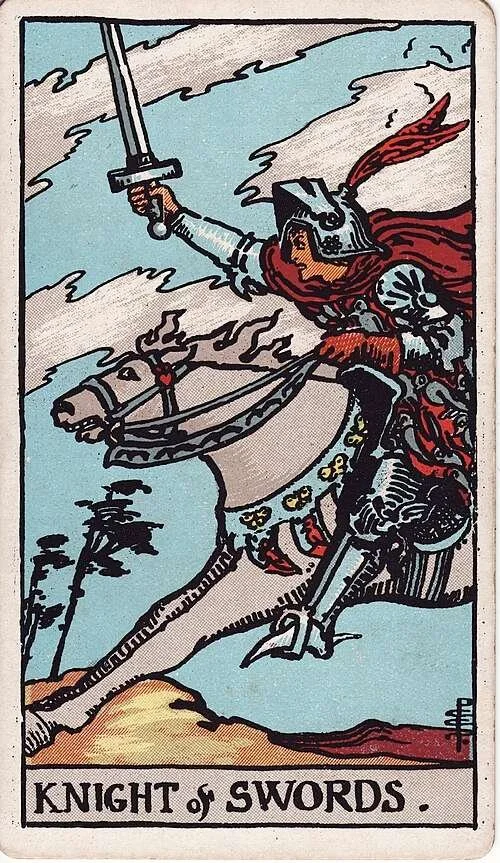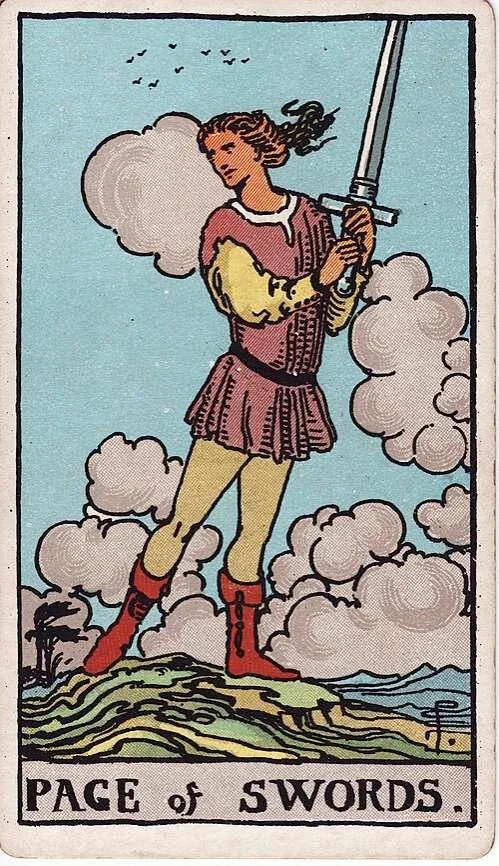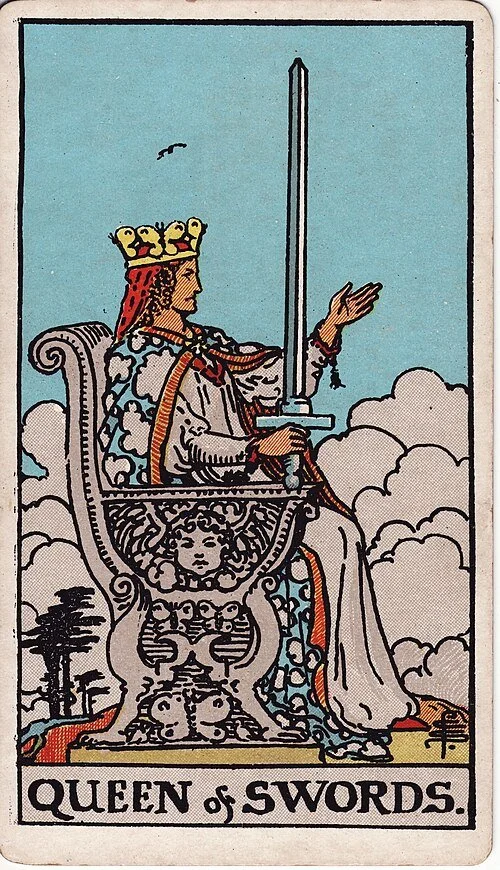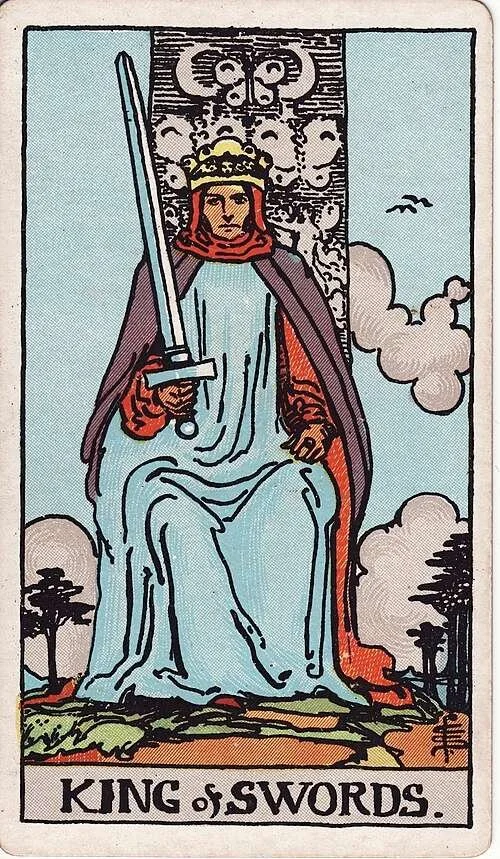The Suit of Swords: Modern RWS Tarot Card Meanings
Suit of Swords Overview
The Suit of Swords cards, Rider Waite Smith tarot.
Upright: Truth, Clarity, Justice, Conflict, Intellect, Logic
Reversed: Confusion, Deceit, Paranoia, Hasty Decisions, Cruelty
The Suit of Swords is the domain of the intellect, representing the power of thought, truth, and justice. It shows us the chasm between subjective and objective truth; language and perception vs reality.
Lots of Swords Cards In A Tarot Reading
If you get lots of Swords cards in a reading, the situation is dominated by mental activity, communication, and conflict. The core issues are likely intellectual, legal, or ethical in nature, rather than emotional or practical. This indicates a time that requires clear, logical thinking and truthful, direct communication. However, it also brings a significant risk of arguments, anxiety, and harsh words.
Success requires the discipline to wield the intellect as a surgical tool for clarity, not a weapon for causing harm. The truth will be a central theme, whether it is being sought, spoken, or avoided.
RWS Swords Cards And The Air Element
The Swords cards get their main themes from their correspondence to the occult element of Air. Air represents the intellect, logic, communication, and the realm of pure thought. Analagous to the wind, this energy can be clear and refreshing or a destructive, cutting gale. It is an active, masculine element, governing the unseen but powerful concepts of language and thought.
The Air / Swords link also includes the Air signs of the zodiac; Libra (2, 3 and 4), Aquarius (5, 6 and 7) and Gemini (8, 9 and 10) respectively. This contributes to the meanings of the cards (both original and modern). For example, the Gemini or mutable Air energy helps to formulate the notoriety of the 7 of Swords; deception, trickiness and theft.
Swords Cards Meanings In Life Areas
Swords Cards in Love & Relationships
In a love reading, Swords highlight the importance of communication, honesty, and intellectual connection. These cards can signify a relationship built on witty banter and shared ideas. However, they also bring the potential for conflict, arguments, and painful truths. Cards like the Three of Swords can point to heartbreak, while the Ten of Swords can signify a final, painful ending. The challenge of Swords in love is to use communication to build understanding, not to win arguments.
Swords Cards in A Money and Career Context
In career, Swords represent the intellectual and strategic aspects of the professional world. They signify careers in law, academia, science, and communication. These cards point to the need for sharp analysis, clear planning, and assertive communication. They also warn of workplace conflict (Five of Swords), stress and burnout (Nine of Swords), and the painful consequences of a failed venture (Ten of Swords).
Swords Cards in a Spiritual Context
Spiritually, the Suit of Swords represents the journey of the rational mind in its quest for truth. It is the path of the philosopher and the sceptic. It governs our ability to analyse beliefs, challenge dogma, and cut through spiritual illusion. The Swords teach that a sharp, disciplined intellect is not the enemy of faith, but a necessary tool for discerning true wisdom from comforting falsehoods.
Swords Suit: Modern RWS Meanings
Additional Notes on the RWS Swords Suit
The Journey of the RWS Swords Cards
The Suit of Swords tells a story of intellectual and moral development. It begins with the Ace, a breakthrough of pure, objective truth. It moves through the Two, the difficult choice between two ideas, and the painful heartbreak of the Three. It finds a moment of necessary rest and mental clarity in the Four before confronting the ego-driven conflict of the Five. The journey continues through the strategic retreat of the Seven and the self-imposed prison of the Eight, culminating in the anxiety of the Nine and the absolute, final ending of the Ten.
Distinguishing RWS Swords Cards: The Three of Swords vs the Ten of Swords
A common point of confusion for students is the difference between the Three of Swords and the Ten of Swords. The Three of Swords represents the first, sharp, piercing pain of a heartbreaking truth or betrayal. It is the moment of realisation, a shock to the system. The Ten of Swords, however, is the absolute, final, and devastating end. It is not just a single painful truth; it is the complete and utter ruin of a situation, a point of no return from which there can be no recovery, only a new beginning.
Continue Learning: Read The Full RWS Cards In Context Series
This article is one part of a comprehensive series on all 78 cards in the RWS tarot system. You can read the full series, by clicking the button below.
